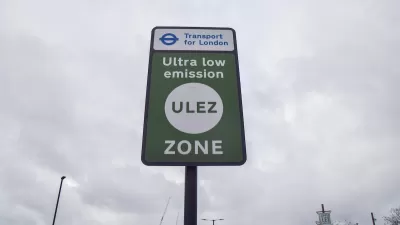A slew of analysis in recent weeks has examined the negative consequences of foreign real estate speculation in cities like New York City, London, and Vancouver.
James Surowiecki begins an article about foreign real estate investment by pointing out that the most expensive real estate market in North America is Vancouver, British Columbia.
"When price-to-income or price-to-rent ratios get out of whack, it’s often a sign of a housing bubble. But the story in Vancouver is more interesting. Almost by chance, the city has found itself at the heart of one of the biggest trends of the past two decades—the rise of a truly global market in real estate."
One consequence of widespread foreign investment in the high-end real estate market is to drive up costs of housing all over the city: "The challenge for Vancouver and cities like it is that foreign investment isn’t an unalloyed good. It’s great for existing homeowners, who see the value of their homes rise, and for the city’s tax revenues. But it also makes owning a home impossible for much of the city’s population."
And here's a statement that might redefine what you thought you knew about how the real estate market works: "The globalization of real estate upends some of our basic assumptions about housing prices. We expect them to reflect local fundamentals—above all, how much people earn. In a truly global market, that may not be the case."
Kyle Chayka also explores the issue of foreign investment in real estate markets. Chayka's analysis, also focuses on the cannibalizing effect absentee landowners can have on places—exemplified especially by London's current situation. "When real estate is looked at simply as a way to make money rather than homes, new communities aren’t being created." The solution to the problem? According to Chayka, "[the] problem suggests less rent control than residency requirements, forcing owners or tenants to actually occupy buildings rather than use them as commodities."
In another examination of the issue, Emily Badger suggests taxing foreign real estate investors for the privilege of owning property in desirable cities. "Taxing them for the privilege -- beyond existing property taxes -- probably won’t deter foreigners who have a lot of money to shell out in the first place (any more than higher taxes on the rich will really drive them out of places like Manhattan). But maybe that revenue could be spent mitigating some of the consequences of international investment." Asking foreign investors to mitigate their impacts, says Badger, wouldn't be so different than the concessions cities ask of real estate developers.
FULL STORY: Real Estate Goes Global

Planetizen Federal Action Tracker
A weekly monitor of how Trump’s orders and actions are impacting planners and planning in America.

Maui's Vacation Rental Debate Turns Ugly
Verbal attacks, misinformation campaigns and fistfights plague a high-stakes debate to convert thousands of vacation rentals into long-term housing.

San Francisco Suspends Traffic Calming Amidst Record Deaths
Citing “a challenging fiscal landscape,” the city will cease the program on the heels of 42 traffic deaths, including 24 pedestrians.

Defunct Pittsburgh Power Plant to Become Residential Tower
A decommissioned steam heat plant will be redeveloped into almost 100 affordable housing units.

Trump Prompts Restructuring of Transportation Research Board in “Unprecedented Overreach”
The TRB has eliminated more than half of its committees including those focused on climate, equity, and cities.

Amtrak Rolls Out New Orleans to Alabama “Mardi Gras” Train
The new service will operate morning and evening departures between Mobile and New Orleans.
Urban Design for Planners 1: Software Tools
This six-course series explores essential urban design concepts using open source software and equips planners with the tools they need to participate fully in the urban design process.
Planning for Universal Design
Learn the tools for implementing Universal Design in planning regulations.
Heyer Gruel & Associates PA
JM Goldson LLC
Custer County Colorado
City of Camden Redevelopment Agency
City of Astoria
Transportation Research & Education Center (TREC) at Portland State University
Jefferson Parish Government
Camden Redevelopment Agency
City of Claremont



























